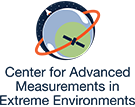SEES Mosquito Mapper High School Summer Internship
June 1–July 31, 2020
The STEM Enhancement in Earth Science (SEES) Mosquito Mapper Summer Internship is a nine-week experience where participants work with their peers and NASA scientists to complete a series of STEM explorations that culminate in a final research project contributing to the scientific understanding of mosquito vectors on the landscape. Research will be presented at a virtual science symposium at the end of the summer.
Interns will:
- Obtain up to four SEES certificates: Climate Science Background and Exploring the Earth (required); Space Exploration, Science and Engineering, Mars and Beyond (optional).
- Participate in a series of guided explorations, building science skills and knowledge that enable analysis of mosquito and land cover data.
- Have access to 1:1 mentoring during weekly scientist office hours.
- Participate in weekly group data blitzes led by Nelson and Low.
- Complete a science research project, demonstrating successful completion of the internship.
- Obtain feedback from the NASA science team, which be used to improve the project so that it can be submitted competitively to a local, regional, or national science fair competition in the upcoming school year.
- Receive a certificate of participation in the NASA SEES Summer High School Internship program, certifying 120 hours of science research experience supporting NASA Earth system science.
- Interested interns will be offered opportunity to coauthor a crowdsourced science paper by Nelson, Low, et al.
Requirements
Participants must:
- Have access to a mobile device (smart phone or tablet) to download the GLOBE Observer mobile app, and a computer and internet access to interact with the SEES cohort and upload data at regular intervals.
- Be interested in participating in weekly data explorations, developing and implementing a research design and sampling strategy, and collaborating with NASA Science Matter Experts (SMEs)
- Be able to devote at least 12-15 hours a week to the project over the summer.
camp hosted by the CAMEE and Texas Space Grant Consortium









